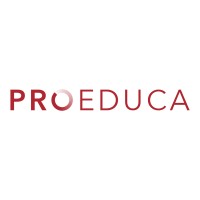
UNIVERSIDAD 2025
TOMORROW UNIVERSITY
By Dr. Desiree Schatzl
Head of Partnerships & Professor in Innovation
The global university for impactful careers
Tomorrow University of Applied Sciences was founded in 2020 by Christian Rebernik, a serial tech entrepreneur and former CTO of N26, and Dr. Thomas Funke, an academic leader and founder of TechQuartier. They combined their expertise, vision and networks to create a technology-driven educational model that is not only engaging and effective but also focused on cultivating resilient, future-oriented leaders. Designed as a flexible, purpose-driven alternative to traditional higher education, Tomorrow’s remote-first approach blends accessibility, innovation and real-world impact to equip learners with essential competencies and empower them to build meaningful, future-ready careers.
By combining asynchronous learning, live online sessions and in-person connections through quarterly meetups and global partnerships such as our hybrid MSc in AI, Technology & Sustainability with Le Wagon, we at Tomorrow University go beyond traditional definitions of hybrid education. Central to our mission is to drive the transition to a sustainable society. Our programs are deeply rooted in the United Nations Sustainable Development Goals (SDGs), with resolving grand challenges at their core. They are designed to equip learners with the tools, skills and mindset needed to tackle pressing global issues and lead industries and communities toward sustainable futures.
Tomorrow University represents a new vision for higher education – one that prioritizes flexibility, purpose and collaboration to prepare learners to navigate and shape a world made increasingly complex by grand challenges like climate change and social inequities. We empower leaders to drive sustainable transformation and create meaningful impact.
Tech-enabled and globally accredited
Tomorrow University stands at the forefront of innovation in higher education, combining cutting-edge technology with global academic recognition. As the first European ed-tech startup to achieve state recognition as a university in 2022, we are accredited by the Hessian Ministry of Higher Education, with all our degree programs meeting the rigorous standards set by German accreditation bodies. This ensures our programs meet the highest academic standards while maintaining the flexibility and innovation that today’s learners demand.
Our remote-first model leverages advanced technology, including AI, machine learning and immersive tools like virtual and augmented reality, to redefine education through experiential, tech-enabled learning. This approach provides personalized learning paths, real-time skill assessments and seamless global collaboration. Built on this robust technological foundation, we are able to adapt swiftly to industry trends and emerging tools that add value to the learning experience. For example, with the growing accessibility of virtual reality assets, we launched our learning app in spatial reality this year, enabling borderless and immersive educational experiences for programs like our MBA.
Recognition as one of HolonIQ’s Europe EdTech 100 and finalist in edTech competitions like the GSV Cup or GSA Award manifest our leadership in creating impactful, purpose-driven programs. This dual focus on technology-enabled learning and academic rigor ensures that our students not only gain practical skills but also graduate with credentials that open doors to future-proof careers worldwide.
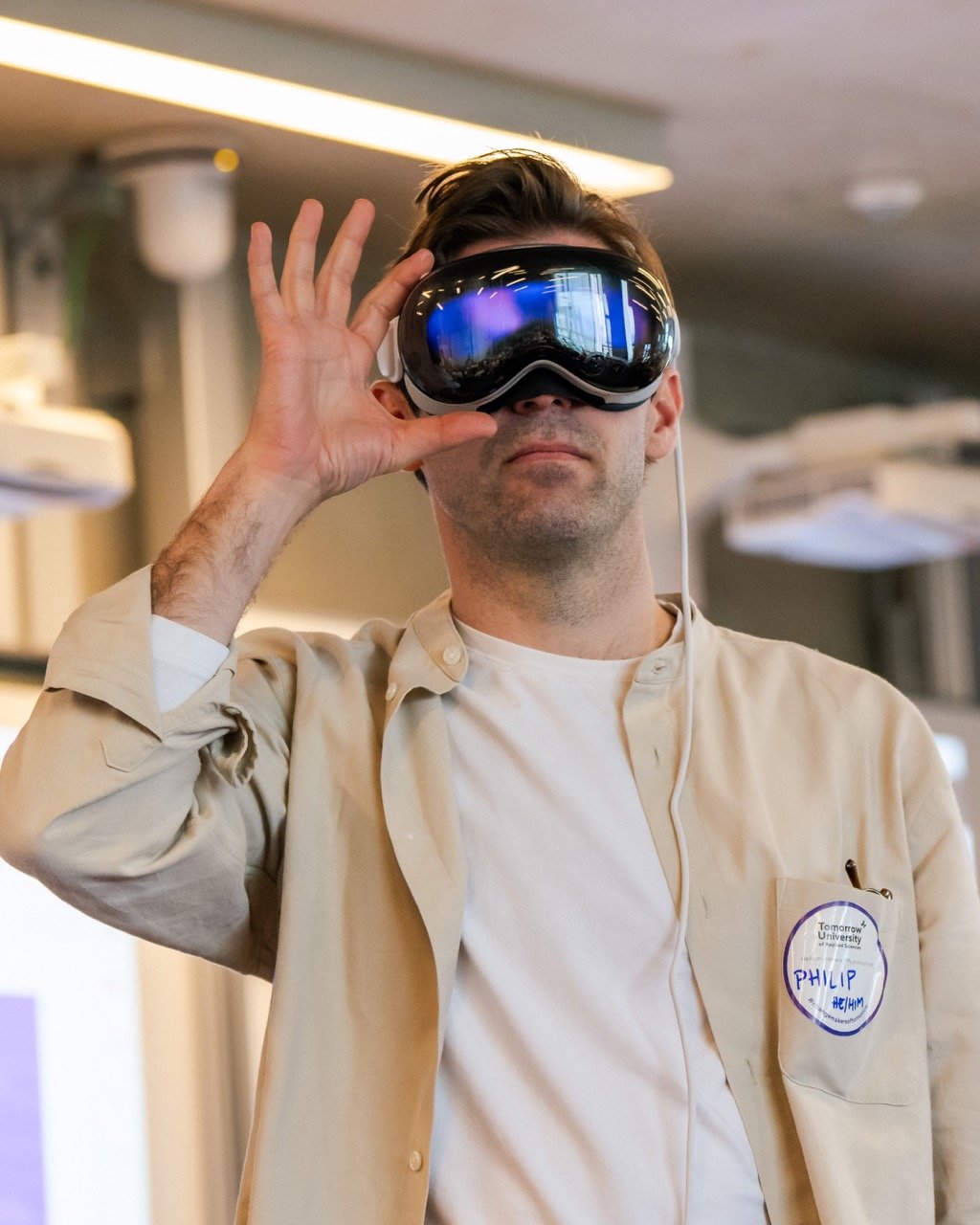
Our educational approach began with a fundamental question: What skills and competencies do learners need to thrive in a world undergoing sustainable transformation? This inquiry led us to design programs that move beyond traditional norms, emphasizing empowerment and real-world impact. Education, in our view, must equip learners to address the challenges that matter most. Instead of rigid semesters or exams, we built our curriculum around 99 essential 21st-century competencies (number continuously growing), including systems thinking, global consciousness, data science and ethical leadership. This competency framework forms the foundation of our model, ensuring learners develop the skills needed to solve real-world problems and excel in impactful roles.
Progress is measured not through conventional grades but by tracking competency development in real time. Learners engage in project-based, rubric-driven assessments designed to emphasize mastery and continuous improvement. This iterative process allows them to refine their work and ensure they are fully prepared to tackle complex, real-world challenges with confidence and skill.
Education at Tomorrow University is not only personalized but also inherently collaborative. Learners access their studies through mobile and spatial devices, enabling flexible learning without sacrificing connection. Community-enabled learning, enhanced by city hubs, quarterly meetups and peer feedback, ensures they remain supported and engaged. Open discussions with professors and peers empower learners to shape their educational journey, aligning every step with their personal mission.
By combining purpose-driven programs, cutting-edge technology and meaningful collaboration, we ensure our graduates don’t just acquire knowledge but create solutions that truly make a difference.
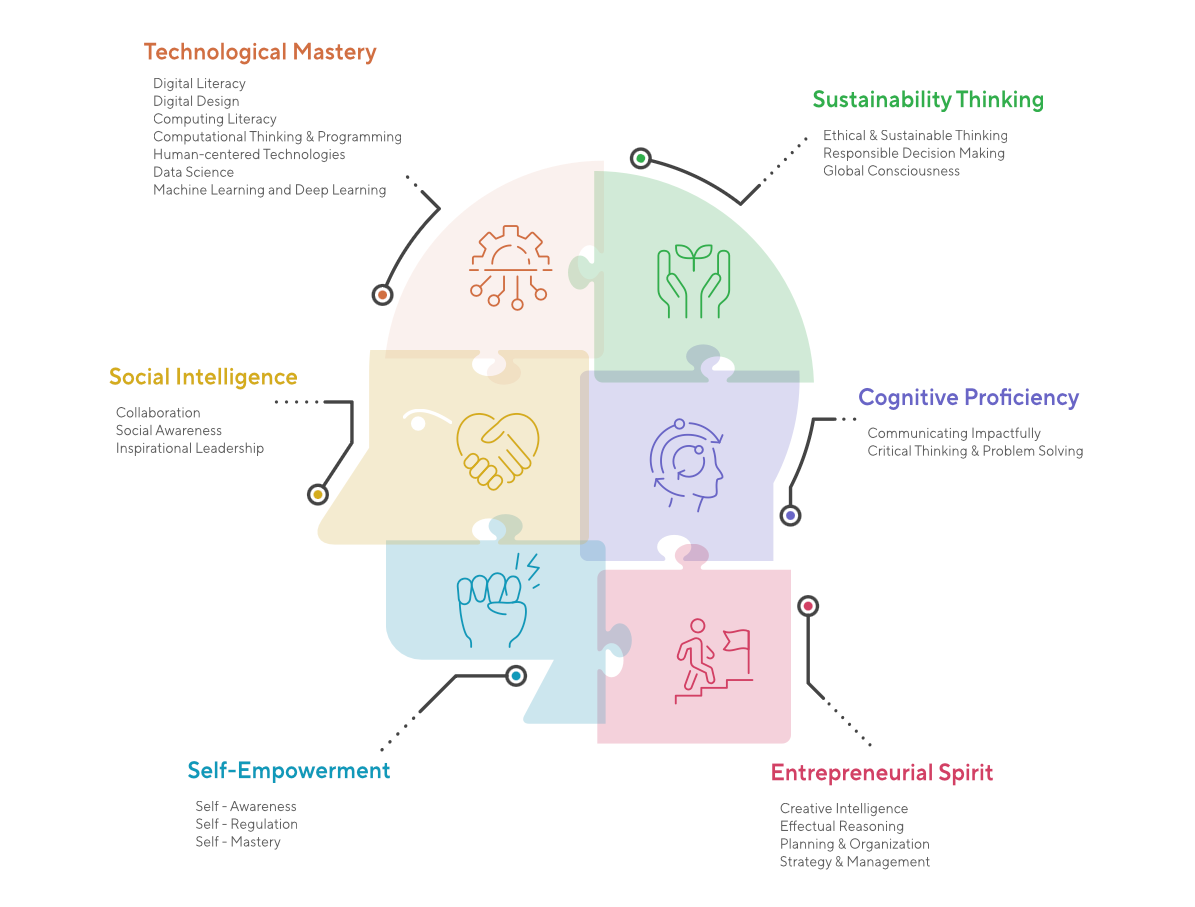
Building a community of forward-thinking leaders
Our admissions process attracts individuals committed to driving societal and environmental impact. By emphasizing values, motivation and changemaking potential over standardized tests like the GMAT or GRE, we make sure that every learner aligns with our mission. Before enrollment, our academic team personally engages with each aspiring learner to confirm their fit within our community. Many learners join through referrals, reflecting the trust and enthusiasm that underpin our growing network.
Once learners become part of our community, the support continues long after graduation. The Tomorrow University Fellowship Program provides alumni with mentorship, networking opportunities and career development resources, ensuring they remain active contributors to their fields. Collaborations with industry leaders open doors to impactful careers, while flexible options for further certifications reinforce our commitment to lifelong learning and growth. This holistic approach fosters a diverse, purpose-driven community equipped to create meaningful change.

Our learning model: flexible, challenge-based and community-driven
Tomorrow University’s approach to education seamlessly combines remote-first flexibility with meaningful collaboration, real-world challenges and cutting-edge technology. Here’s what sets us apart:
A model that meets learners where they are
Flexibility is foundational to our approach. Learners engage asynchronously via our app, balancing studies with their personal and professional commitments. This is complemented by live sessions, peer collaborations and in-person meetups in major cities worldwide. Together, these elements ensure learners stay connected and engaged while tailoring their education to fit their lives.
Challenge-based learning for real-world impact
Traditional courses and exams are replaced by real-world challenges co-designed with industry leaders like Tesla, Google and Plan A. We like to think of each challenge as a knowledge sprint. These challenges foster critical skills like systems thinking, leadership, and problem-solving while addressing pressing global issues. Collaborative elements, such as group projects and peer discussions, further enrich the learning experience, ensuring students actively create impactful solutions.
Competency-first curriculum
We have flipped the traditional approach to curriculum design by prioritizing competencies over content. Programs are built around real-world skills, and assessments are project-based, leveraging detailed rubrics to provide transparent and actionable feedback. Learners refine their work iteratively, fostering growth and mastery over grades. This approach ensures our accredited degrees are both rigorous and innovative.
A mission-aligned approach
Our pedagogical model is deeply rooted in purpose and impact. Thus, our programs are designed to help learners connect their personal missions to their academic journey, ensuring that every step they take contributes to their broader goals for societal impact. Through a structured Mission Journey integrated with their academic path, students are guided to make thoughtful, personalized choices, focusing on areas where their studies can be applied to create meaningful, real-world change.
Integration of Advanced Technology
Technology lies at the heart of our educational experience, with our app serving as a hub for personalized learning. It offers tailored learning paths, real-time skill assessments and seamless peer collaboration, ensuring a highly interactive and adaptive journey. Advanced features like AI-driven personalization and virtual reality integration empower learners to customize their studies, engage deeply with the material, and remain connected across time zones, fostering a truly global and innovative learning environment.
Partnerships that expand horizons
Partnerships are integral to our model, enhancing education with immersive, real-world opportunities. Collaborations with institutions like Le Wagon, Vienna University of Economics (WU Wien), TU Darmstadt and the Fraunhofer Institute enrich learning with hybrid experiences. Our Joint MSc in AI, Technology & Sustainability with Le Wagon for example, allows learners to study at global campuses, blending digital flexibility with localized immersion. Similarly, collaborations with organizations like Eintracht Frankfurt and Kelb Blue provide learners with opportunities for on-site challenges and projects, bridging the gap between theory and practice.
Fostering lifelong relationships for systemic change
At the core of our educational model lies the cultivation of lifelong relationships. We believe that meaningful community, strong networks and genuine connections are essential for driving systemic change. To ensure this change transcends borders, we prioritize building a global and diverse network for our learners. Collaboration is woven into every aspect of the learning experience, through peer discussions, mentor-guided projects and challenges designed by industry experts. This interconnected community inspires and supports its members, fostering a strong network of leaders who collaborate and drive impact long after graduation.
Integration of mobile-first and AI technology
Our app is central to the learning experience, offering personalized learning paths, real-time skill assessments and opportunities for peer collaboration. Advanced tools, such as AI-driven personalization and virtual reality integration, enable learners to adapt their studies and stay connected across time zones.
Holding ourselves accountable by measuring our impact
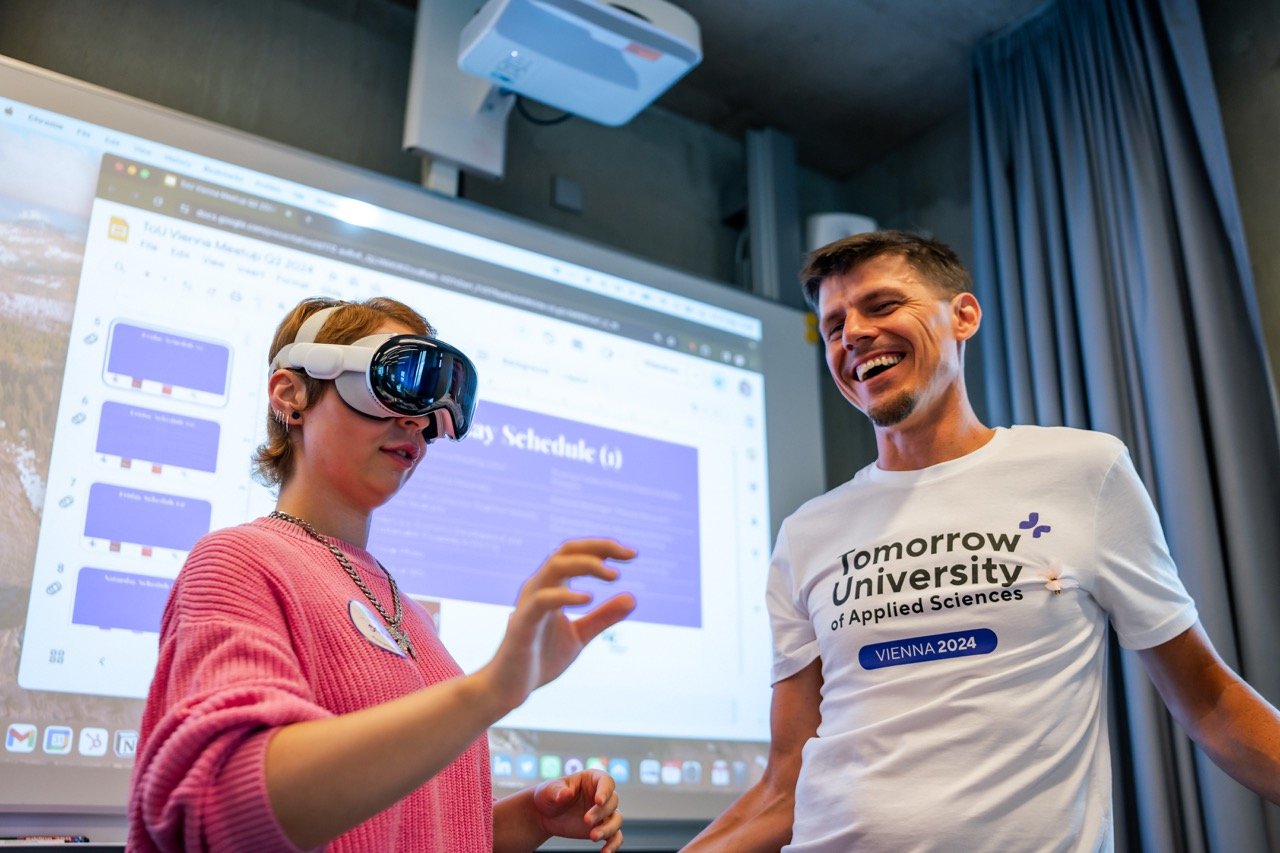
At Tomorrow University, we define success by the real-world impact our learners achieve. Guided by a robust theory of change, we measure outcomes across four dimensions: input, output, outcome and long-term contributions. Metrics such as retention rates, Challenge Net Promoter Scores and the Diversity and Accessibility Index reflect learner engagement, inclusivity, and academic progress. Mission alignment is a core focus, ensuring studies connect directly to learners’ personal and professional goals. Metrics like the Transition to SDG-related Work and Impact Leadership Rate demonstrate how graduates advance sustainable development and lead transformative projects.
Scaling personalization and partnerships
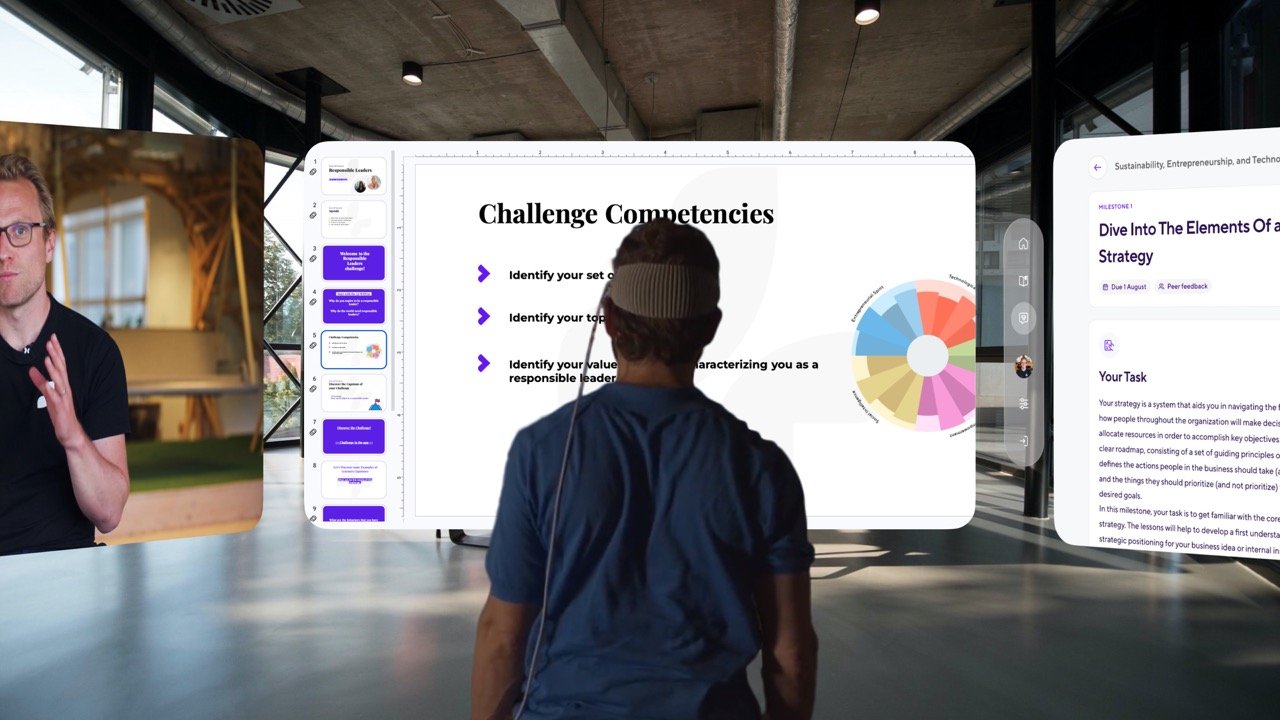
Our vision for Tomorrow University’s future is rooted in advancing personalization, leveraging technology and fostering strategic collaborations. We are enhancing technology-based tools such as the AI Tutor, designed to align learners’ academic paths with their missions, and the AI Community Assistant, which will connect them with the most relevant mentors and peers. These tools, combined with our evolving learning philosophy, will help us refine optimal personalization strategies, ensuring every learner’s journey is as impactful as it is tailored.
Expanding partnerships remains a cornerstone of our strategy. Collaborations with organizations like Le Wagon and TU Darmstadt will continue to provide immersive, hands-on learning opportunities. As we develop new programs in areas like ethical AI, regenerative design and circular economy leadership, we aim to address some of the most pressing global challenges. Additionally, we are committed to increasing accessibility, extending our innovative model to underserved and underrepresented communities worldwide.
Looking further, we are exploring the integration of augmented and mixed reality to create even more engaging, experiential learning environments. Expanding our city hubs and fostering regional ecosystems of changemakers are also on our plan. These initiatives make sure that we not only adapt to the future of education but actively shape it, building a global network of learners and leaders ready to create meaningful change.
Conclusion
By keeping an open mindset, actively listening to our learners and future generations, embracing bold innovation, and staying firmly committed to meaningful impact, we are confident in our ability to shape the future of education while meeting the demands of today’s world.
Author: Dr. Desiree Schatzl, Head of Partnerships & Professor in Innovation, Tomorrow University of Applied Sciences.
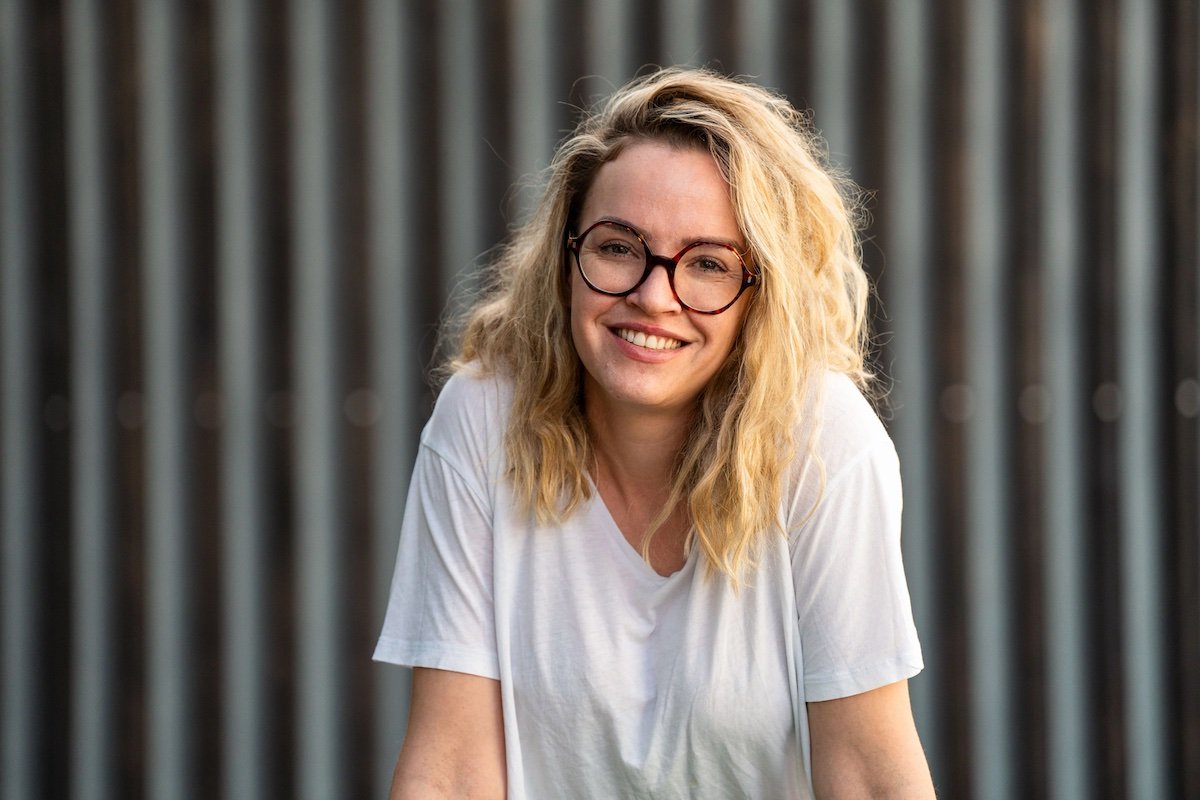
This article is available in Spanish via Nueva revista. Click HERE.
Universidad 2025 is a publication by:
Nueva Revista
Nueva Revista is a Spanish publication dedicated to analyzing contemporary society, focusing on culture, humanities, science, art, and politics. It offers in-depth analysis and expert perspectives on topics such as higher education innovation, technological advancements, social change, and public policy. Featuring contributions from renowned academics, writers, and thought leaders, the magazine fosters critical dialogue and intellectual debate, making it a key reference for those interested in the intersection of knowledge, society, and progress.
If you’d like to read this year’s edition of University 2025 in Spanish, please click below:
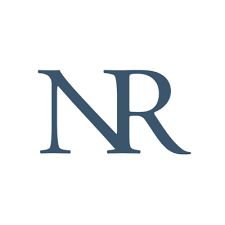
In collaboration with Proeduca
PROEDUCA’s objective is to provide the best online higher education to its students and it achieves this through educational commitments at three universities: The International University of La Rioja, the Online University of Mexico (UNIR Mexico), and CUNIMAD. It also offers studies located in Peru, at the Newman Postgraduate School, and in the United States, where it has a presence through MIU City University Miami.
